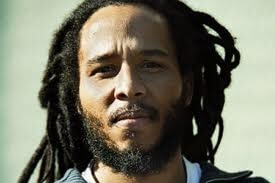What does it take to begin a personal revolution, anyway? Five-time Grammy winner, humanitarian, singer and songwriter Ziggy Marley sends the message of “beginning with yourself” on his new live album, Ziggy Marley In Concert (released in stores January 15). You may be familiar with this reggae icon, as his father Bob Marley has left his own imprint of love throughout numerous recording sessions released worldwide.
A Personal Message
“It’s about the personal more than the global,” Marley said. “It’s more about heartbreak and about a voice not being heard.” The album’s synopsis? Marley said individuals need to change their habits and continue to be revolutionary. “Until a person starts changing themselves with more love, more understanding, more revolution and learn to love each other, we’ll continue to have a cycle of violence over and over and over again.”
The message Marley conveys throughout his album as well as his attribute to global issues is simply, “love.”
“Sometimes it is tough though,” Marley said. “We as human beings don’t all think the same way, so it is something you have to continually nurture. It doesn’t always just happen that way and it’s not always perfect, but you have to continually build it.”
Marley said although he has always had this mindset, he had to realize it through a plethora of learning experiences. “It’s who I was and who I am.”
Finding Balance
It’s hard to believe Marley isn’t a Reggae superhero, as he teamed up with Rotary International with his song, Personal Revolution, aiding the fight alongside the “This Close to Ending Polio” campaign.
As a touring artist and advocate, Marley continues to balance his time and energy between traveling, writing a children’s book, releasing a product line and maintaining his awe-inspiring attention to global issues. “It’s not something I’m trying to do, because I actually care about these things,” Marley assured. “It’s not a job, and it’s not outside of myself to do it.”
Global Issues: So, What Can Students Do?
Although involved in numerous advocacies, Marley’s attention lies most within the global warming issue. “I don’t know why it isn’t on the news everyday,” Marley said. “People don’t take it seriously, and they don’t think it’s that urgent of an issue.”
Marley compared the earth’s “illness” to that of a cardiac arrest, expressing the importance of paying close attention to the global damage being done. “You think, ‘let me go to the doctor” when you are sick, so just think of the planet as yourself, too.”
“We don’t think it is something that is real and actual, because we aren’t affected to the level of the movement,” Marley said. “People are neglecting the main concern. We are in a serious condition, but because it’s not in the media there is not much concern.”
With as many resources available, Marley encourages students who can do something to actually take action. “If we could do something we should,” Marley said. “Everyone looks at what they can grab now and how it can affect them now. No one cares as much about the future, but everyone has to suffer the consequences, so everybody should begin to think of it as a priority.”



















